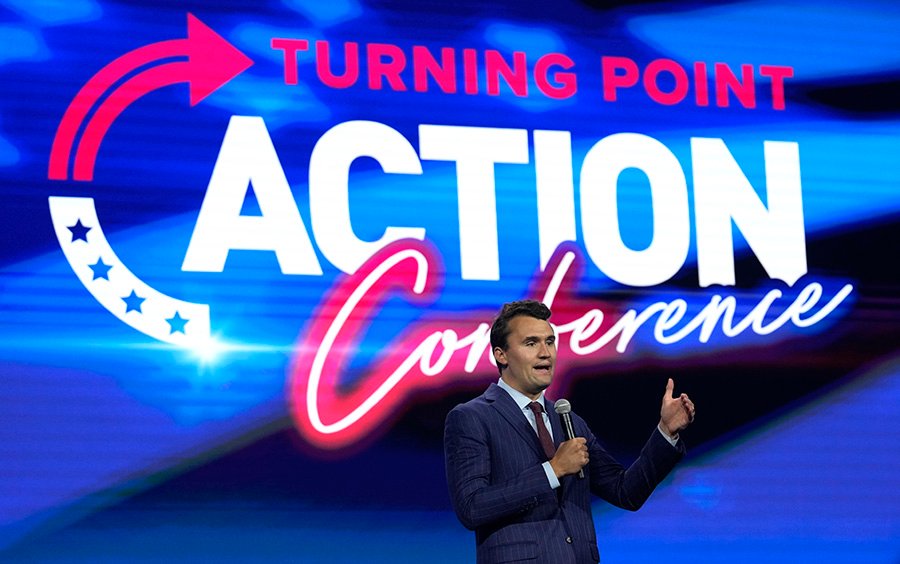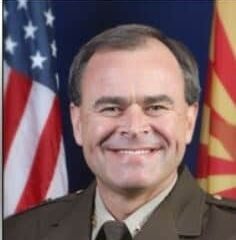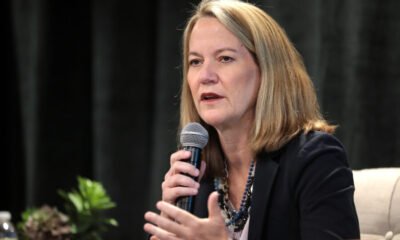colleges
Democrats Gear Up to Tackle Turning Point Challenge

Turning Point USA (TPUSA), based in Phoenix, has emerged as a significant force in American politics, particularly among young voters. This organization, once considered fringe, has gained substantial traction on college campuses nationwide, effectively mainstreaming extreme right views and capturing the interest of younger, disengaged voters, particularly young men. Their message of “Resist the Left” challenges traditional youth political engagement, aiming directly at voting-eligible students under 21.
This younger generation has grown up amidst Trump’s political landscape, defining their Republican identity largely around him. Their perspectives are detached from earlier Republican ideals such as limited government or compassionate conservatism, associating only with the chaotic political atmosphere of the past decade. For them, Trump represents a constant; significant events like 9/11 or the 2008 financial crisis are distant memories.
In Arizona, the impact of TPUSA is evident. The organization has played a crucial role in Republican voter registration efforts from 2020 to 2024. Their strategic focus on low-information voters has shifted Arizona’s political dynamics, moving it away from Democratic leadership. TPUSA’s financial power is notable, with reported revenues of $82 million in 2023, enabling them to aggressively support Republican candidates and initiatives.
Within the Democratic Party, there is growing concern regarding TPUSA’s influence. Steven Slugocki, former Chair of the Maricopa County Democratic Party, acknowledged the need to re-engage youth, noting previous efforts that have waned over the years. “We can’t take youth support for granted. We must earn their votes,” he stated, emphasizing the importance of revitalizing young Democratic organizations.
Emerging leaders within the Democratic ranks are also voicing their challenges with the current landscape. Jacob Marson, Chair of the Keep Arizona Blue Student Coalition, pointed out that TPUSA is outpacing Democratic youth organizations on campuses. There’s a clear urgency to rethink engagement strategies and reconnect with the rising generation of voters.
Jacob George, Executive Director of Unity Rising, echoed similar concerns, advocating for new methods to engage young and working-class voters. He criticized the existing strategies that have failed to yield necessary results, emphasizing a need for understanding and addressing everyday issues faced by the community.
Historically, younger voters have lower turnout rates compared to older demographics. However, their voting habits do develop over time, prompting a need for Democrats to actively cultivate support among these voters. The rise of TPUSA presents a critical challenge, and concerted efforts must focus on countering their influence.
Experts suggest that a collective effort from Democratic donors and strategists could establish a formidable alternative to TPUSA. Such an initiative would need to present an attractive message that resonates with young voters, avoiding labels that might portray it as overly liberal or disconnected.
The aim should be to portray Democratic values—such as economic opportunity, personal liberty, and global stability—as pathways to a better future. An organization with a robust presence on college campuses could reclaim electoral ground, particularly among young male voters.
The potential exists to build a strong counterforce against the growing influence of TPUSA, but it will require strategic investments and committed leadership. The coming years will test how effectively Arizona Democrats can mobilize youth and respond to this shifting political landscape.
Matt Grodsky is a partner at Matters of State Strategies and previously served as the Communications Director for the Arizona Democratic Party. His insights and experience reflect a deep engagement with the evolving political dynamics in Arizona.
















